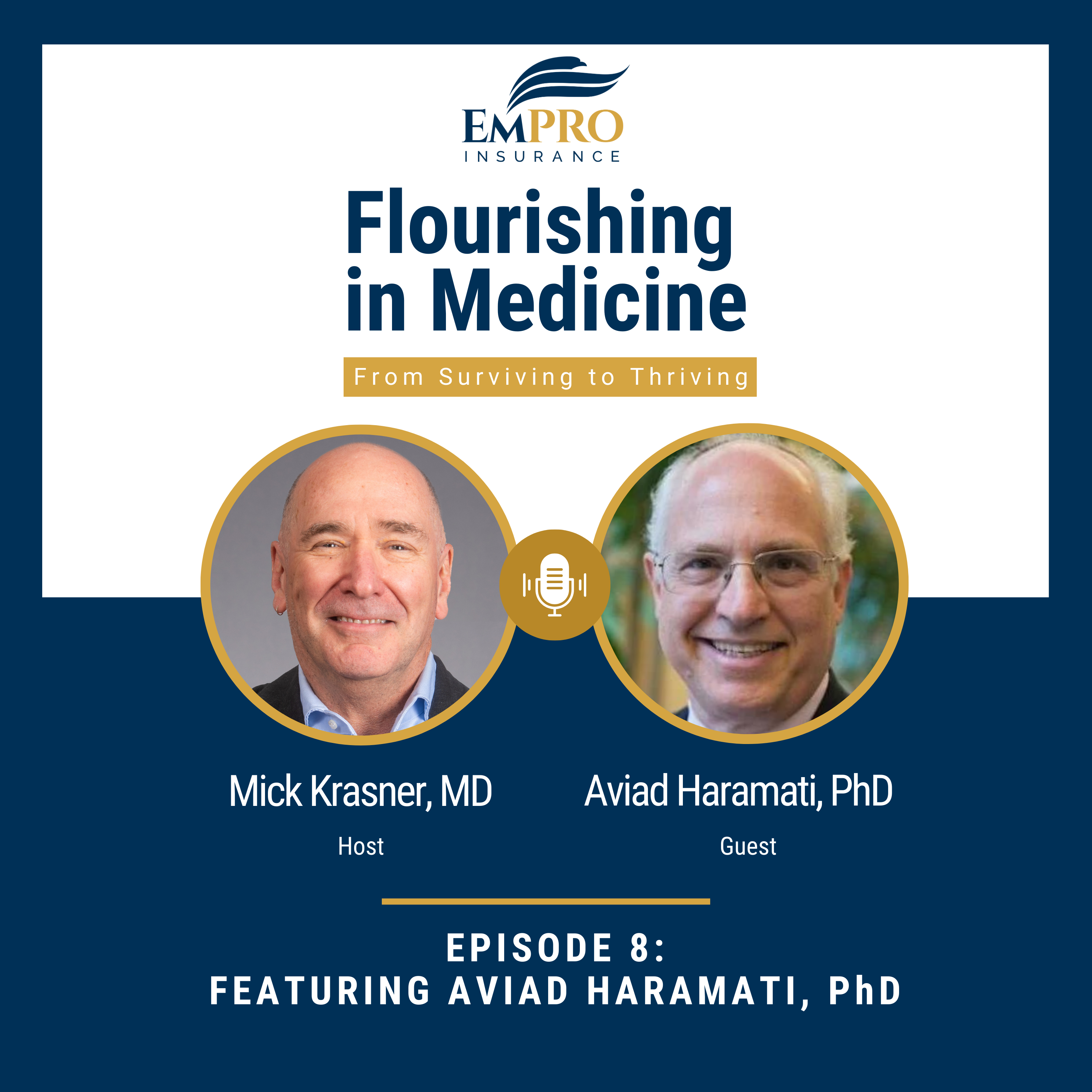Listen to Episode 8 Below:
The guest for this podcast was Professor of Integrative Physiology and co-director of the Graduate Program in Integrative Medicine & Health Sciences at Georgetown University Medical Center (GUMC). A graduate of Brooklyn College (CUNY), he received a PhD in Physiology from the University in Cincinnati College of Medicine, and came to Georgetown 38 years ago, after 5 years at Mayo Clinic. In 2013, he was named the Founding Director of the Center for Innovation and Leadership in Education (CENTILE) at GUMC. His research interests for over 25 years addressed renal and electrolyte homeostasis, but in the past two decades, he has focused on medical education and rethinking how health professionals are trained.
Dr. Haramati has taught physiology for over 40 years and been recognized with 11 Golden Apple awards from medical and graduate students at Georgetown. In addition, he was awarded the Arthur C. Guyton Teacher of the Year award by the American Physiological Society, the Alpha Omega Alpha Robert J. Glaser Distinguished Teaching Award from the Association of American Medical Colleges (AAMC), the Master Scholar Award from the International Association of Medical Science Educators (IAMSE), and named Distinguished Educator by the GUMC Teaching Academy for Health Sciences. He chairs the Council of Faculty and Academic Societies of the AAMC and currently serves on the AAMC Board of Directors. Dr. Haramati has advocated that mindful practices together with small groups be integrated in the training of health professionals to foster resilience and improve well-being in the learning and work environments at academic health centers. He has been a visiting professor at over 100 medical schools worldwide.
In this podcast, Dr. Haramati shares his unique journey from studying physiology to becoming a leader in mind-body medicine education. He initially pursued physiology due to a fascination with the science underlying medicine, having no desire to work directly in a hospital setting. Over the years, he sought mentors and eventually transitioned into a role where education became a significant focus. The pivotal moment occurred during a meeting at Harvard Medical School, where the importance of medical education in training professionals was emphasized. This realization led him to integrate mind-body medicine into the curriculum, addressing the need for a more holistic approach in medical training. The conversation also touches on the evolving landscape of medical education, including the recognition of stress and burnout and efforts by organizations like the AAMC to address these challenges.
He further discusses the transformation in medical education and the evolving understanding of the importance of self-care for medical professionals. Highlighting the acknowledgment of human frailties and limits, Adi emphasizes the necessity of incorporating self-awareness and reflection into medical training. Recently, he has introduced a new course called the Course on Human Flourishing, which aims to provide strategies for thriving in medical school and life. Drawing inspiration from positive psychology and social science, the course explores domains such as family, work, education, and community, emphasizing the interconnected factors contributing to individual and population flourishing. Sharing personal experiences as an educator, Dr. Haramati highlights the joy derived from helping students discover their potential and the satisfaction of making a positive impact on medical education.
Guest:
Aviad Haramati, PhD
Faculty Page, Johns Hopkins University:
https://centile.georgetown.edu/aviad-haramati/
Other mentions or references during the podcast:
Vanderweele TJ. On the Promotion of Human Flourishing. PNAS (2017) 114 (31): 8148-8156
Kern National Network for Flourishing in Medicine. https://knncaringcharactermedicine.org/
Goleman, Daniel. What Makes a Leader. Harvard Business Review, January, 2004.
CENTILE: The Center for Innovation and Leadership in Education: https://centile.georgetown.edu/
